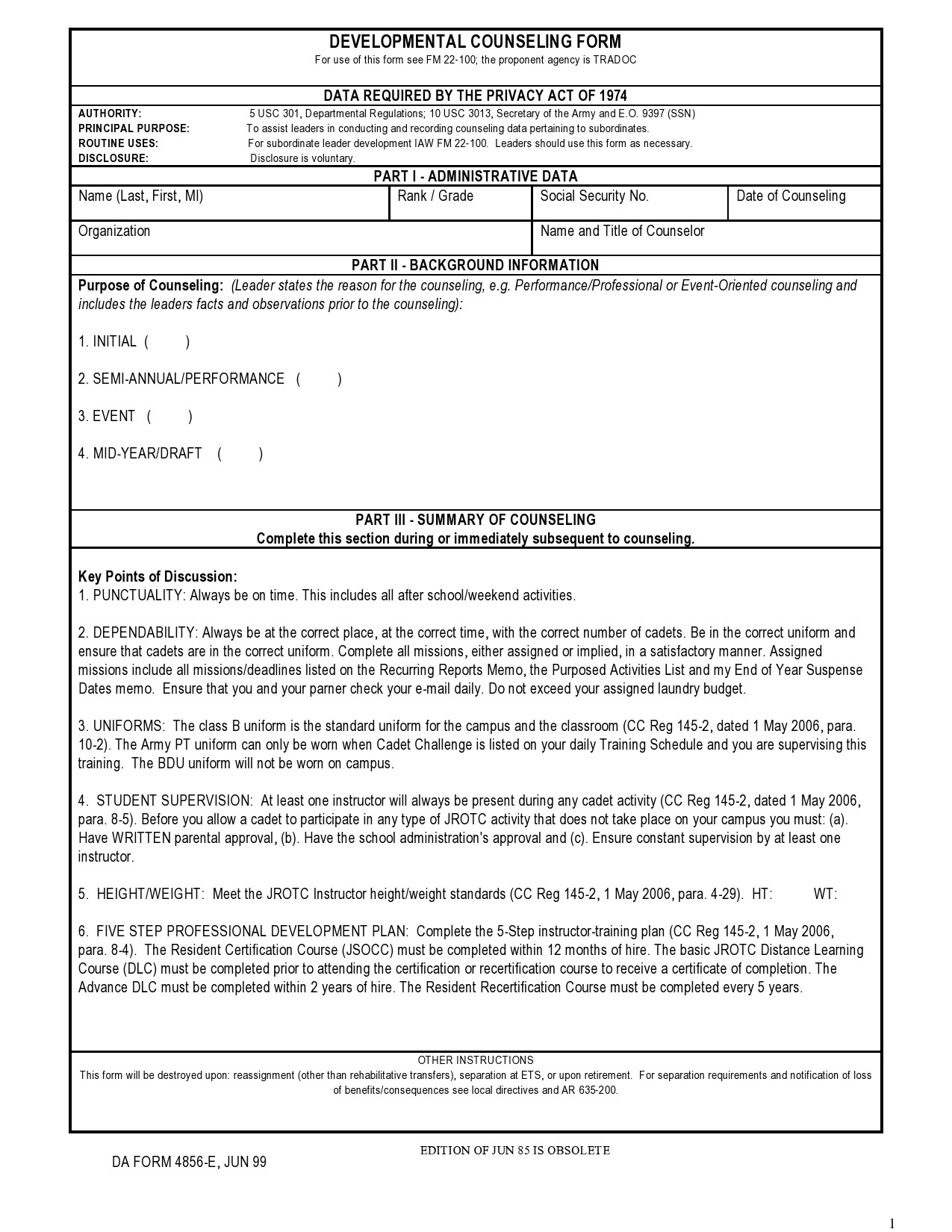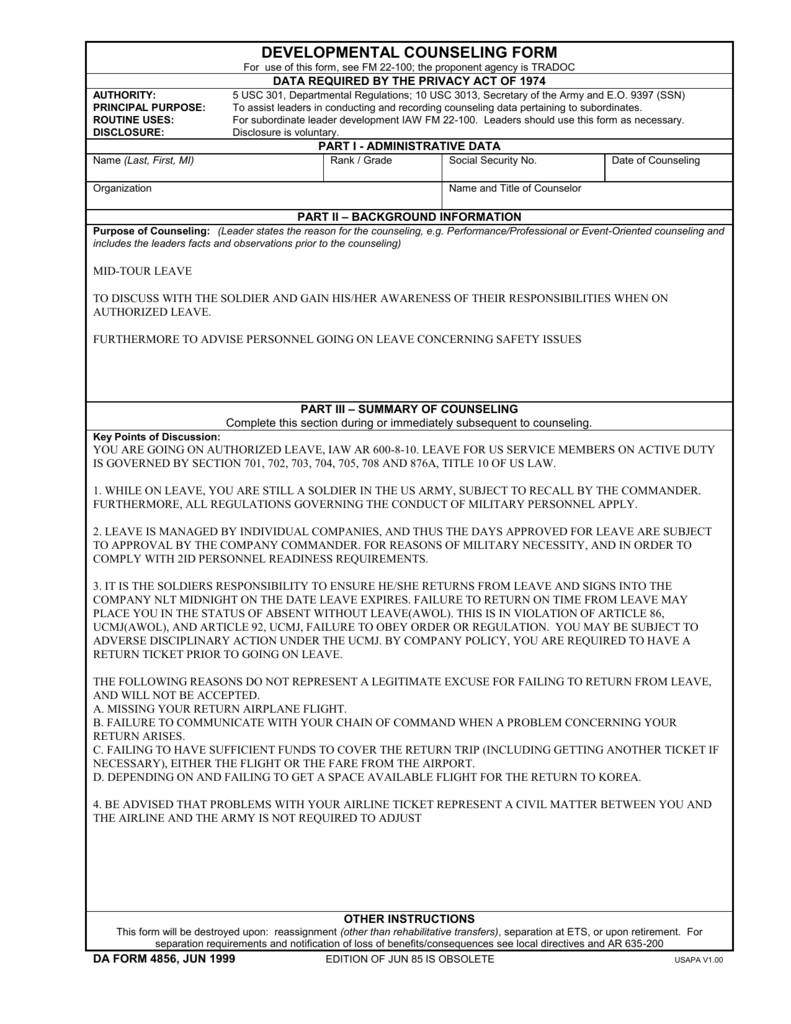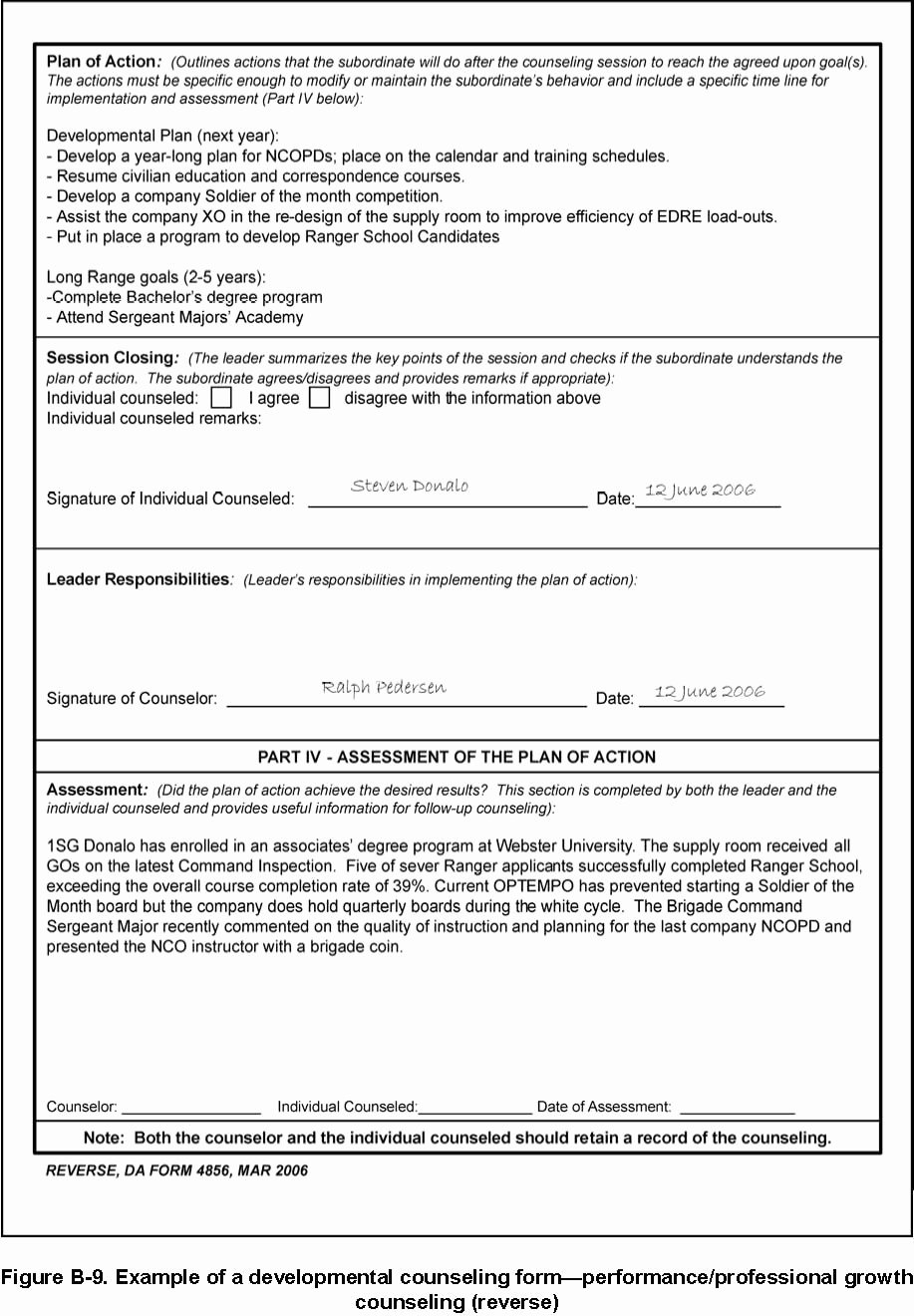Counseling Army Regulation
Types of Counseling in the Army
As a member of the armed forces, it is important to understand the different types of counseling that are encompassed within the Army Regulation Counseling. Counseling plays a vital role in the development and growth of soldiers, both personally and professionally.
Initial Counseling: Setting the Foundation for Success

Initial counseling is the very first step in the counseling process for soldiers in the Army. This type of counseling sets the stage for the soldier's future success by establishing clear expectations and highlighting areas of improvement.
Performance Counseling: Enhancing Soldier's Abilities
Performance counseling focuses on improving a soldier's performance in their assigned duties and responsibilities. It aims to identify their strengths and weaknesses while offering constructive feedback to enhance their abilities. It is important for soldiers to receive performance counseling regularly to ensure they are consistently growing and meeting the Army's high standards.
Professional Development Counseling: Nurturing Growth and Progress
Professional development counseling is aimed at fostering the growth and progress of soldiers in their military careers. This type of counseling focuses on establishing short-term and long-term goals, identifying training opportunities, and assisting in the selection of appropriate career paths within the Army. Professional development counseling aids soldiers in their pursuit of promotions, specialized training, and professional certifications.
The Importance of Regular Counseling
Regular counseling is crucial for soldiers in the Army as it provides them with the guidance and support necessary for their personal and professional growth. By consistently engaging in counseling sessions, soldiers can identify areas of improvement, receive feedback to enhance their performance, and align their goals with the overall objectives of the Army.
Frequently Asked Questions
1. How often should soldiers have counseling sessions?
Soldiers should have counseling sessions regularly, with the frequency determined by their position, rank, and specific circumstances. Typically, soldiers can expect to have counseling sessions at least once every quarter or as needed.
2. Can counseling sessions be conducted remotely?
Yes, counseling sessions can be conducted remotely through various technological means, such as video conferencing or phone calls. This allows for flexibility, especially for soldiers deployed in remote locations or during times when in-person meetings are not possible.
3. What should a soldier do if they disagree with the counseling received?
If a soldier disagrees with the counseling they have received, it is important for them to have an open and honest discussion with their counselor. They should express their concerns or reasons for disagreement respectfully. In such cases, the counselor may reassess or revise their feedback accordingly.
The Benefits of Army Regulation Counseling
The Army Regulation Counseling provides soldiers with a structured framework for personal and professional development. It serves as a valuable tool for enhancing their abilities, fostering growth, and shaping successful military careers. By embracing the counseling process and actively participating in counseling sessions, soldiers can chart a path towards excellence within the Army.
Conclusion
The Army Regulation Counseling encompasses various types of counseling essential for the development and growth of soldiers. Through initial counseling, performance counseling, and professional development counseling, soldiers can receive the guidance and support necessary to excel in their military careers. Regular counseling sessions are invaluable for setting goals, improving performance, and nurturing personal and professional growth. By embracing counseling and taking advantage of the resources provided, soldiers can achieve excellence in their service to the country.
3 Types Of Counselings Army - Army Military
 Image Source : armymilitary.net
Image Source : armymilitary.net Counseling Army Examples - Army Military
 Image Source : armymilitary.net
Image Source : armymilitary.net 31 Free Army Counseling Forms (DA 4856 Fillable) ᐅ TemplateLab
 Image Source : templatelab.com
Image Source : templatelab.com Army Regulation Counseling - Army Military
 Image Source : armymilitary.net
Image Source : armymilitary.net Army Regulation Counseling - Army Military
 Image Source : armymilitary.net
Image Source : armymilitary.net FM 22-102: Wall-to-Wall Counseling — The Infamous Fake Military Regulation
 Image Source : taskandpurpose.com
Image Source : taskandpurpose.com Monthly Counseling Example
 Image Source : www.myoscommercetemplates.com
Image Source : www.myoscommercetemplates.com counseling monthly example initial regulation statement wine army templates
3 Types Of Counselings Army - Army Military
 Image Source : armymilitary.net
Image Source : armymilitary.net Fm 22-102: wall-to-wall counseling — the infamous fake military regulation. Counseling monthly example initial regulation statement wine army templates. 3 types of counselings army. 31 free army counseling forms (da 4856 fillable) ᐅ templatelab. Counseling army examples